|
|
As businesses increasingly rely on Customer Relationship Management (CRM) systems to manage customer interactions, data privacy and security have become critical concerns. With the growing risk of cyber threats, data breaches, and stringent global compliance regulations, businesses must prioritize CRM data security and compliance to protect sensitive customer information, maintain regulatory adherence, and build trust with clients.
Failure to implement a robust CRM security strategy can result in legal penalties, financial losses, and reputational damage. Regulations such as the General Data Protection Regulation (GDPR), California Consumer Privacy Act (CCPA), and Health Insurance Portability and Accountability Act (HIPAA) enforce strict guidelines on how businesses collect, store, and process customer data. Companies that fail to comply with these regulations risk severe fines and legal consequences.
With insights from WiFi Digital, a leader in CRM security, data protection, and regulatory compliance, this guide explores best practices for ensuring CRM data security and compliance. From role-based access control and encryption to automated compliance monitoring and AI-driven threat detection, businesses will learn how to safeguard customer data while staying compliant with global regulations.
Understanding CRM Security Risks and Compliance Challenges
Before implementing CRM security measures, businesses must first understand the potential risks and challenges associated with data security and regulatory compliance. A poorly secured CRM system can expose businesses to unauthorized access, data theft, and legal violations, leading to severe financial and reputational damage.
Common CRM Security Risks
- Unauthorized Access – Weak access controls can allow unauthorized employees, hackers, or third parties to access sensitive customer data.
- Data Breaches – Cybercriminals can exploit vulnerabilities in CRM software to steal personal and financial data.
- Insider Threats – Employees with excessive data access privileges may misuse or leak sensitive information.
- Data Loss and Corruption – Without proper backup and disaster recovery protocols, businesses risk losing valuable customer data due to system failures or cyberattacks.
- Non-Compliance with Regulations – Failure to meet GDPR, CCPA, or industry-specific compliance standards can result in hefty fines and legal consequences.
Key CRM Compliance Challenges
- Managing Consent and Data Subject Rights: Regulations like GDPR require businesses to provide customers with control over their personal data, including access, rectification, and deletion requests.
- Ensuring Data Encryption and Secure Storage: Many regulations mandate end-to-end encryption and secure cloud storage solutions to protect customer data from cyber threats.
- Cross-Border Data Transfers: Businesses operating internationally must comply with data sovereignty laws, ensuring that customer data is stored and processed in approved regions.
- Audit Trails and Data Monitoring: Compliance laws require businesses to maintain detailed logs of data access, modifications, and security incidents for regulatory reporting.
By addressing these security risks and compliance challenges, businesses can develop a CRM security framework that ensures long-term data protection and regulatory adherence.
Implementing Role-Based Access Control (RBAC) for CRM Security
One of the most effective ways to enhance CRM security is by implementing Role-Based Access Control (RBAC). This approach ensures that only authorized personnel can access specific CRM data, reducing the risk of insider threats, accidental data leaks, and unauthorized modifications.
How RBAC Strengthens CRM Security
- Limits Data Access: Employees are only granted access to the specific data they need to perform their job functions.
- Prevents Data Manipulation: Restricting editing and deletion privileges ensures that only authorized users can modify CRM records.
- Reduces Insider Threats: Limiting access to sensitive customer data minimizes the risk of internal security breaches.
- Improves Audit and Monitoring Capabilities: RBAC helps track who accessed data, when, and what changes were made, ensuring regulatory compliance.
Best Practices for RBAC Implementation
- Define User Roles and Permissions – Segment users into categories such as sales representatives, marketing teams, customer support agents, and administrators, each with defined access rights.
- Restrict Admin Privileges – Limit administrator access to only senior IT personnel and compliance officers.
- Implement Multi-Factor Authentication (MFA) – Add an extra security layer by requiring users to verify their identity via SMS, email, or biometric authentication before accessing the CRM.
- Regularly Review and Update Access Controls – Conduct quarterly access audits to ensure that employees only have access to the data they need.
- Monitor User Activity Logs – Track user behavior and flag suspicious access patterns to detect potential security threats.
By enforcing strict RBAC policies, businesses can protect CRM data integrity, prevent unauthorized access, and ensure compliance with data privacy regulations.
Enhancing CRM Data Encryption and Secure Cloud Storage
Data encryption is a critical component of CRM security, ensuring that sensitive customer information is protected from cyber threats and unauthorized access. Encryption converts raw data into an unreadable format, making it inaccessible without a decryption key.
Types of Encryption for CRM Security
- End-to-End Encryption (E2EE): Ensures that customer data remains encrypted at all times, from data entry to storage and transmission.
- Database Encryption: Protects stored CRM records by converting data into encrypted formats that require authentication for decryption.
- Transport Layer Security (TLS): Secures data transmissions between CRM systems and third-party applications, preventing interception by hackers.
Cloud Storage Security Best Practices
- Use Secure Cloud CRM Solutions – Opt for CRM platforms with built-in encryption such as Salesforce Shield, Microsoft Azure Security, and AWS Key Management Service (KMS).
- Implement Data Backup and Disaster Recovery – Schedule automated data backups to prevent data loss due to cyberattacks, server failures, or human errors.
- Enable Data Masking for Sensitive Information – Hide sensitive customer details (e.g., credit card numbers, Social Security numbers) to reduce exposure risks.
- Restrict API Access – Limit third-party integrations to trusted applications that comply with CRM security standards.
- Conduct Regular Security Audits – Assess cloud storage environments for vulnerabilities and compliance gaps.
By implementing strong encryption protocols and secure cloud storage, businesses can ensure that customer data remains protected from cyber threats and unauthorized access.
Automating Compliance Monitoring and Risk Mitigation
Regulatory compliance requires continuous monitoring, risk assessment, and real-time reporting to ensure that businesses adhere to global data protection laws. Instead of relying on manual compliance tracking, businesses should leverage AI-driven compliance automation tools to streamline processes.
How AI-Powered Compliance Automation Works
- Detects Compliance Violations in Real-Time: AI scans CRM records and data transactions to identify potential regulatory violations.
- Automates Data Subject Requests (DSRs): Processes customer data access, deletion, and modification requests in compliance with GDPR and CCPA.
- Maintains Compliance Logs and Audit Trails: AI automatically records CRM activity, ensuring transparency for regulatory audits.
- Proactively Flags Security Risks: AI-driven analytics identify suspicious login attempts, unauthorized data exports, and abnormal user behaviors.
Key Compliance Automation Tools for CRM Security
- GDPR Compliance Plugins – Tools like OneTrust and TrustArc automate data privacy workflows within CRM systems.
- AI-Based Fraud Detection – Platforms like Splunk and IBM Security QRadar analyze CRM logs for security anomalies.
- Automated Consent Management – Solutions like Osano and DataGrail track customer consent preferences and update CRM records accordingly.
By leveraging AI-powered compliance monitoring, businesses can ensure ongoing regulatory adherence, prevent security breaches, and reduce legal risks.
A secure and compliant CRM system is essential for protecting customer data, ensuring regulatory adherence, and maintaining brand credibility. By implementing RBAC, encryption, cloud security, and AI-driven compliance automation, businesses can minimize security risks and stay ahead of evolving data protection regulations.
With WiFi Digital’s expertise in CRM security and compliance solutions, businesses can develop robust, future-proof data protection strategies that safeguard customer information and drive long-term trust and growth. Now is the time to optimize CRM security, automate compliance, and protect your business from cyber threats. 🚀
Automating Workflows and Leveraging AI-Powered Insights
One of the biggest advantages of Salesforce CRM is its ability to automate workflows and leverage AI-driven insights to enhance business efficiency. Without automation, many businesses struggle with time-consuming manual processes, slow response times, and disjointed customer interactions. Implementing intelligent automation ensures that lead management, customer follow-ups, and sales forecasting happen seamlessly, allowing teams to focus on strategic decision-making rather than repetitive administrative tasks.
Salesforce offers powerful automation tools such as Salesforce Flow, Process Builder, and Workflow Rules, which allow businesses to create customized workflows tailored to their unique needs. For example, a sales team can set up an automated lead nurturing sequence that assigns prospects to the appropriate representative based on geographic location, purchase history, or engagement level. When a high-intent lead engages with a marketing campaign, Salesforce can trigger an automatic follow-up email or task assignment, ensuring that no opportunity slips through the cracks.
Beyond automation, Salesforce Einstein AI provides predictive analytics that help businesses make data-driven decisions. Einstein analyzes customer behavior, historical sales trends, and market conditions to forecast which leads are most likely to convert. By scoring leads based on engagement metrics, purchasing history, and demographic data, sales teams can prioritize high-value prospects and improve their closing rates.
AI-powered chatbots and virtual assistants within Salesforce enhance customer service capabilities by handling routine inquiries, resolving common issues, and scheduling appointments without human intervention. Einstein Bots can provide instant responses to customer queries, reducing customer support wait times and improving overall satisfaction. For businesses that operate in multiple time zones or manage large volumes of inquiries, AI-driven customer interactions ensure that customers receive real-time assistance 24/7.
Salesforce automation also extends to marketing workflows, allowing businesses to deliver personalized campaigns at scale. Instead of sending generic email blasts, Salesforce’s AI-driven segmentation allows marketers to target specific customer groups based on past interactions, purchasing behaviors, and engagement patterns. A company can create automated email sequences that nurture leads through the sales funnel, adjusting messaging dynamically based on customer responses and activity.
The benefits of automating workflows and leveraging AI-driven insights extend beyond efficiency; they enable businesses to reduce costs, increase sales productivity, and enhance customer experiences. By eliminating manual inefficiencies and enabling predictive intelligence, Salesforce helps companies maintain a competitive edge in today’s fast-paced market.
Driving User Adoption and Continuous Optimization
A successful Salesforce implementation is not just about technology—it also requires strong user adoption and continuous optimization. Many businesses face challenges with low employee engagement, as teams may resist change due to lack of training, unfamiliar workflows, or the complexity of the CRM system. Ensuring that employees fully embrace Salesforce is key to unlocking its full potential and achieving long-term business growth.
One of the most effective ways to encourage user adoption is through role-based training programs. Instead of generic onboarding sessions, businesses should tailor training based on each team’s specific CRM interactions. Sales teams, for example, need to focus on pipeline management, lead tracking, and opportunity forecasting, while marketing teams should be trained on campaign automation, segmentation, and customer engagement analytics. Customer service representatives, on the other hand, must understand ticket management, chatbot integrations, and service-level tracking.
Providing hands-on practice through Salesforce sandbox environments allows employees to experiment with features in a risk-free setting before transitioning to live operations. Interactive training modules, video tutorials, and step-by-step guides can enhance learning and improve retention, making the onboarding process more engaging. Live Q&A sessions and ongoing support ensure that employees feel comfortable using Salesforce and can ask questions as they encounter challenges.
Beyond initial training, businesses should focus on long-term user engagement strategies to maintain high adoption rates. One effective method is gamification, where teams earn points or rewards for achieving specific milestones within Salesforce. By implementing leaderboards, recognition programs, and achievement badges, businesses can create a culture of CRM engagement and continuous improvement.
Monitoring user adoption through performance analytics is also crucial. Salesforce provides built-in tracking tools that allow administrators to measure how frequently employees log in, update records, and complete assigned tasks. If adoption rates are low, businesses can adjust their strategy by providing additional coaching, simplifying workflows, or implementing feature enhancements based on user feedback.
Continuous optimization is just as important as initial adoption. Regular system audits, performance reviews, and feedback loops help businesses refine their Salesforce setup to align with evolving business goals. As companies grow, their CRM requirements may change, requiring updates to custom objects, automation rules, and integrations.
By prioritizing user adoption and ongoing optimization, businesses ensure that Salesforce remains a central part of their success strategy, empowering teams with the tools and insights they need to thrive. A well-integrated, fully utilized CRM system leads to greater efficiency, improved customer experiences, and sustained business growth.
Implementing Salesforce CRM is a transformative step for businesses looking to optimize customer relationships, sales performance, and data-driven decision-making. However, a successful deployment requires strategic planning, seamless data migration, workflow automation, and continuous user engagement to unlock its full potential. Companies that fail to structure their Salesforce implementation risk low adoption rates, inefficient processes, and underutilized CRM capabilities.
By defining clear business objectives, selecting the right edition, customizing workflows, and integrating automation, businesses can create a high-performing CRM system tailored to their specific needs. The power of AI-driven insights, predictive analytics, and marketing automation further enhances Salesforce’s ability to increase efficiency, improve conversion rates, and personalize customer interactions at scale.
Ensuring strong user adoption and continuous optimization is equally critical. By providing role-based training, gamification strategies, and ongoing CRM enhancements, businesses can maximize team productivity and long-term ROI. Regular performance audits, data quality checks, and system refinements will keep Salesforce aligned with business growth and market demands.
With WiFi Digital’s expertise in Salesforce CRM implementation and optimization, companies can develop scalable, data-driven CRM strategies that fuel customer engagement, revenue growth, and operational success. Now is the time to invest in a structured Salesforce approach, streamline business processes, and leverage AI-powered automation to drive future success. 🚀
WiFi Digital: Connecting Businesses to the Digital Future
In today’s fast-paced world, where a strong digital presence is essential for business growth, WiFi Digital emerges as a strategic partner for small and medium-sized businesses (SMBs). Founded in 2023 and based in London, Ontario, the company has a clear mission: to provide affordable, high-quality solutions that help businesses thrive online. With an experienced and passionate team, WiFi Digital goes beyond simply creating websites and marketing strategies. Its purpose is to empower entrepreneurs, strengthen brands, and give clients more free time to focus on what truly matters – growing their business and improving their quality of life.
WiFi Digital develops websites that authentically and professionally represent your brand, optimizes systems and digital marketing strategies to enhance visibility and return on investment (ROI), and offers affordable, customized solutions, ensuring that businesses of all sizes have access to effective growth tools. With transparency, partnership, and innovation, the company provides each client with the necessary support to achieve real results.
Business digitalization is not just about numbers or metrics. It directly impacts entrepreneurs’ well-being, bringing more organization, efficiency, and freedom to focus on what truly matters. WiFi Digital understands that by investing in digital solutions, businesses gain time, reduce operational stress, and create opportunities to connect better with their customers. A well-structured online presence not only increases sales but also strengthens the public’s trust in the brand.
Beyond technical expertise, WiFi Digital’s key differentiator is its commitment to people. The company values genuine relationships, creates tailored strategies, and works side by side with clients to ensure that every solution meets their specific needs. If you’re looking to boost your brand, attract more customers, and still have more time to focus on what truly matters, now is the time to act!
💡 Transform your digital presence with experts who understand your needs.
📩 Contact us now: contact@wifidigital.ca
🌍 Learn more: www.wifidigital.ca
🚀 Your growth starts here!




